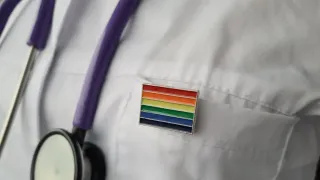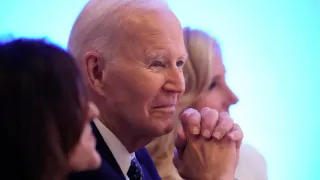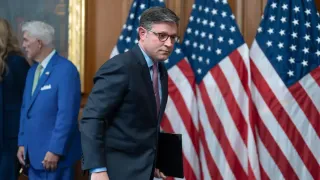
4 hours ago
Conor McDermott-Mostowy Wins Silver and Bronze at U.S. Speed Skating Championships, Edges Closer to Olympic Dream
READ TIME: 15 MIN.
Conor McDermott-Mostowy, a 26-year-old speed skater from Washington, D.C., delivered standout performances at the recent U.S. Speed Skating Championships, earning both silver and bronze medals in a fiercely competitive field . The event, held in Salt Lake City, drew the nation’s top skaters as they vied for national titles and points toward Olympic qualification .
These results further bolster McDermott-Mostowy’s bid for the 2026 Winter Olympics, a goal that has driven his training and competitive focus since missing the 2022 Games due to illness . His achievements are not only a testament to his athletic ability but also represent a significant milestone for LGBTQ+ visibility in a sport where representation remains limited.
McDermott-Mostowy’s journey to the top of U.S. speed skating has been marked by both promise and adversity. In 2021, he was preparing for the ISU Speed Skating World Championships and was within reach of his Olympic debut when a bout of norovirus forced him to withdraw, ending his Olympic hopes that year . Rather than deterring him, this setback became a catalyst for renewed focus and personal growth.
In the years since, McDermott-Mostowy has steadily improved his standings, notching a personal best at the 2024 World Cup #5 in Salt Lake City, where he completed the 1000-meter race in under one minute and seven seconds—a time achieved by only three other Americans in history . His recent silver and bronze at the U.S. Championships are the culmination of a season he describes as “unexpectedly good skating,” characterized by record-breaking performances and a newfound appreciation for the sport.
“Seeing the prospect of the Olympics disappear in 2022 made me reframe what’s important—working on doing things for myself, having fun outside of skating, and remembering that skating is not everything in my life,” McDermott-Mostowy told Macalester College reporters earlier this year .
As an openly gay athlete, McDermott-Mostowy’s ascent in U.S. speed skating is particularly notable. While winter sports have historically seen less LGBTQ+ representation than other disciplines, his success stands as both an inspiration and a challenge to the status quo . By competing—and winning—on a national stage, he sends a powerful message to young LGBTQ+ athletes: that authenticity and peak performance can go hand in hand.
McDermott-Mostowy’s visibility is part of a broader shift in the sporting landscape, as more elite athletes come out and share their stories. His presence on the U.S. national team, which he has represented since 2020, breaks barriers and provides much-needed representation in the Olympic pipeline . The impact of such visibility extends beyond the rink, fostering a more inclusive environment and challenging outdated stereotypes.
With his latest medals, McDermott-Mostowy is well-positioned for Olympic qualification, having demonstrated consistent improvement across multiple distances and formats. His results in the 2024–25 season have included top-ten finishes in World Cup events and steady progress in international competitions . Most recently, he placed among the top finishers at the AmCup Final and Pan-Am Challenge, further solidifying his status as a leading contender for Team USA .
As the next Olympic cycle approaches, McDermott-Mostowy has embraced the challenges and opportunities that come with his dual role as athlete and advocate. He continues to balance elite training with personal growth, emphasizing the importance of mental health and community support. His story is a reminder that athletic achievement and authenticity are not mutually exclusive—and that the path to the Olympics can, and should, be open to all.
McDermott-Mostowy’s achievements are part of a growing movement for inclusivity in sport. While progress has been made in recent years, barriers remain for LGBTQ+ athletes, especially in less-visible disciplines like speed skating. Advocacy organizations and sporting bodies have highlighted the need for continued support, safe spaces, and policy protections to ensure that all athletes can compete as their authentic selves .
The visibility of athletes like McDermott-Mostowy is crucial in driving this change. His medals at the U.S. Championships are not only personal triumphs but also collective victories for the LGBTQ+ community, affirming that excellence knows no boundaries of identity. As he moves closer to Olympic qualification, his story will continue to inspire—and challenge—both the sport and society at large.






